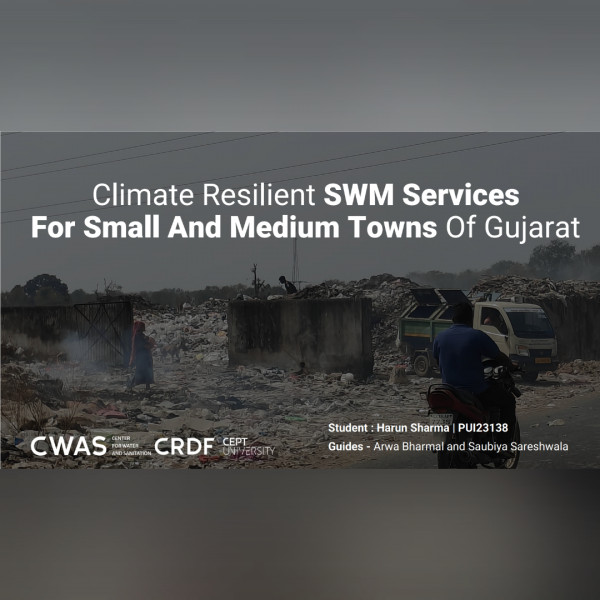Climate Resilient SWM Services For Small And Medium Towns Of Gujarat
May 2025
As climate change accelerates, mismanaged municipal solid waste is emerging as a critical contributor to environmental degradation and greenhouse gas (GHG) emissions. Small and medium towns, often underserved in national infrastructure investments, face distinct challenges including weak institutional capacity, inadequate processing facilities, and unsustainable waste practices. This study examines two representative towns in Gujarat, Viramgam and Mansa, to assess their solid waste management (SWM) systems and propose climate-resilient interventions tailored to their context.
Despite achieving high door-to-door waste collection coverage, both towns reveal significant breakdowns in the downstream SWM value chain. Source segregation stands below 14 percent, scientific disposal at only 3 percent, and recovery rates are just 21 percent. Most waste ends up in open dumps or is informally burned, driving up methane and CO₂emissions, straining municipal budgets, and exposing communities to public health risks. The study builds on the hypothesis that the absence of formal processing and disposal infrastructure in such towns not only hampers sustainable service delivery but also limits their capacity to integrate climate action into SWM. However, these towns also present a unique opportunity to leapfrog traditional waste management models and adopt low-carbon, climate- resilient solutions from the outset.
Using a mixed-methods approach combining field diagnostics, emissions modelling, stakeholder interviews, and value chain analysis, the study identifies critical service gaps and quantifies climate impacts. In response, six actionable and scalable recommendations are proposed. The study offers a replicable model for India’s small and medium urban centers navigating the challenges of urbanisation and climate vulnerability.
